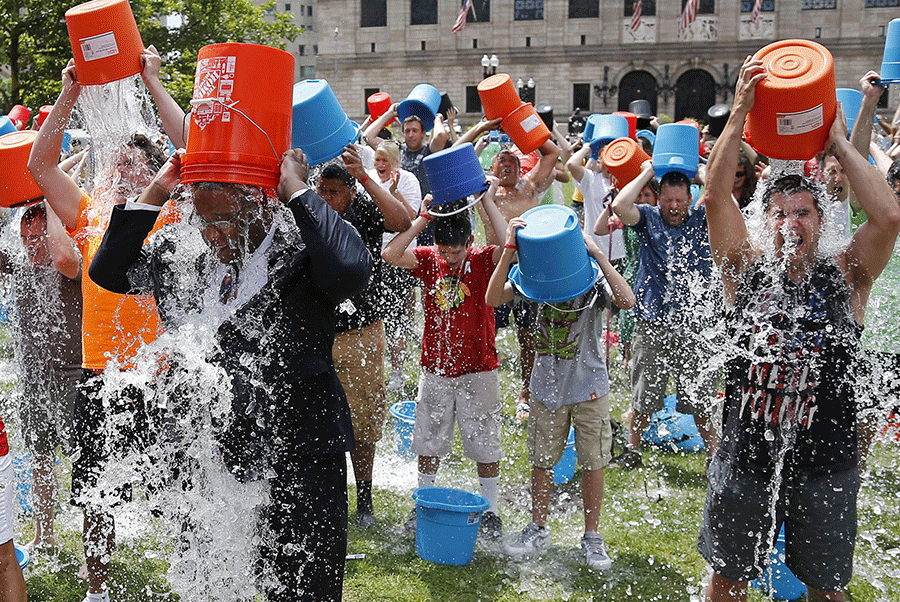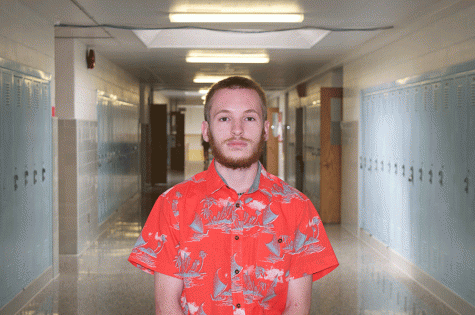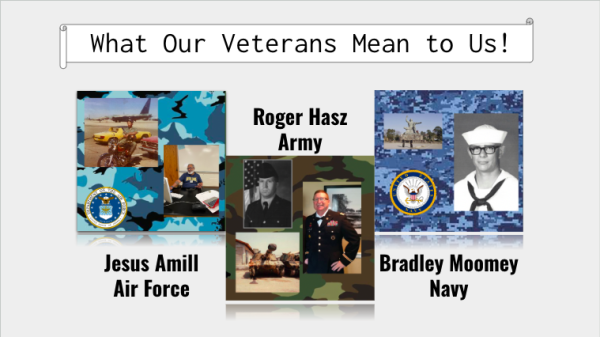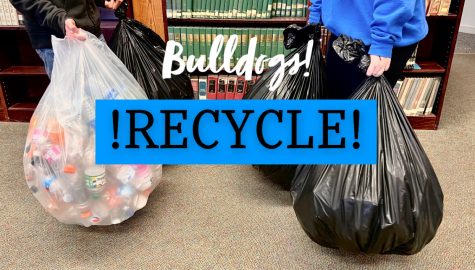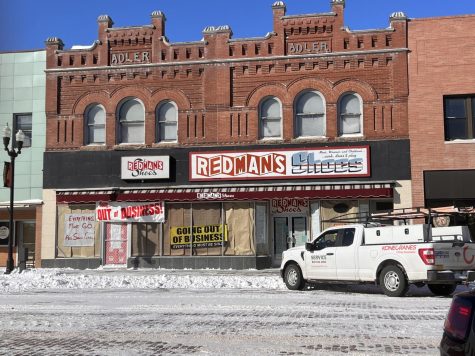The Personal Side of ALS
August 29, 2014
ALS, “Amyotrophic lateral sclerosis,” sometimes referred to as Lou Gehrig’s disease, is a neurodegenerative disease that works in a cycle, affecting the spinal cord and nerve cells in the brain. The name ALS may sound familiar because of the ever so popular ALS Ice Bucket Challenge that has gone viral on many social media sites. Although there has been an abundance of positive feedback from this challenge, there has been plenty of negativity shoved towards it also. I can’t quite understand why. The only negative part about the challenge is the people calling it a bad challenge. Some people believe it’s stupid and pointless, but how exactly are donations and awareness stupid and pointless?
Before the challenge, most people had no idea that a disease like ALS even existed. Thanks to the Ice Bucket Challenge, everybody now knows about it. Once somebody gets ALS, the likelihood of surviving is very slim. I’ve experienced somebody I love go through the terrible cycles of this disease.
During the early stages of ALS, the muscles become soft or stiff. They begin twitching and cramping, and the muscle bulk begins to decrease. The person then begins to slur words and lose their balance, and they develop a weak grip. It’s incredibly difficult to just walk.
Once the middle stage kicks in, the symptoms become more widespread. Some people will begin to feel paralyzed or very weak, and their body joints may become painful and even deformed. Driving a car at this point would be an impossibility, and the weakness in their throat muscles may cause them to choke; so they have to be with somebody else at all times.
The last stage is terrible, and it’s basically over at that point. I remember seeing my Uncle Blaine Quick go through this process. Just a few months ago, we were cutting firewood to support him for the winter. At that point he was still able to move around and lift heavy objects, but he was shaky, and he began to slur his words. He was still in the beginning stages, but when he reached the middle stages, it was difficult to communicate with him. He was given a machine that would speak for him. Even that was difficult because he was barely able to move on his own. He needed the support of other people, and the company of his family as well.
On June 23, 2014, he invited us to his home. After spending the afternoon with my uncle, we went back home only to get a phone call a few hours later that he had taken a turn for the worse. We went back to his house where we were with him as he passed away on June 24, 2014, just six short months after his diagnosis. Most of my family was there, except for my dad, who was traveling on his way back from North Dakota on an eight-hour drive. During this time, my family took turns keeping vigil at his bedside. He was connected to a machine that helped him breathe. If the machine stopped working he would not be able to breathe on his own, and would soon pass on. My Uncle Blaine had the strength to wait the eight hours that it took my dad to arrive. They were able to say their goodbyes, and then his mask was removed, and he died. There was a hospice nurse with us, and a minister to help anybody who needed it. He went peacefully, but I remember feeling empty, nervous, and sick to my stomach. Nobody deserves to suffer like he did, but he had a loving family who was with him until the end.
There are cases like this all around the world, and the families all go through the same horrible thing. Nobody deserves that, and ALS needs the awareness. The Ice Bucket Challenge is great because it opened people up to the disease. In 2013, only $2.6 million was raised. This year, because of the Ice Bucket Challenge, $88.5 million has been raised.
The AHS staff did the ice bucket challenge after being nominated by the wrestling team. After everyone was drenched, I asked Mr. Clear, ‘Why do you think it’s important to participate in this challenge?’ He said, “ALS is a devastating disease. It’s a great way to bring awareness, and also a great way to involve the kids.” I thought this was a great answer because it was completely true. I’ve seen all kinds of different people doing the challenge, whether they are kids or adults, and I think it’s awesome. I asked Ms. Walla what she thought about the negativity towards the ice bucket challenge. Her response was interesting, because she was confused by the question. She said, “I think it’s for a good cause and it helps spread awareness. It doesn’t make sense that there is any negativity towards it and I didn’t know that there was.”
Something that’s raised $88.5 million and has opened many peoples’ eyes up to what’s been going on is obviously something that shouldn’t be perceived in a negative way. At this time there is no current cure, but with all the money the ice bucket challenge has raised, it brings hope for the future and finding a cure. I just wish this challenge happened sooner, but people are finally coming together about something that matters, and what matters is helping the people who are dying of ALS.

